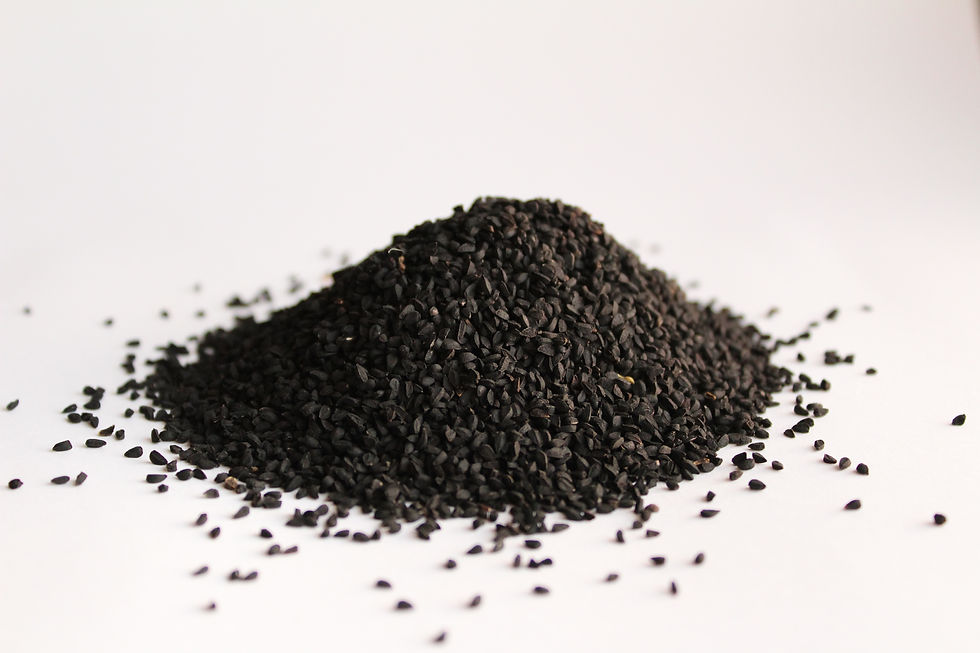Nigella Sativa: Black Seed of Healers
- Sylvia Rose

- Dec 17, 2023
- 3 min read
Updated: Jan 13, 2025
Nigella sativa or kalonji is a blackseed plant with healing properties. Use in cooking and folk medicine is documented by the 2nd millennium BCE. It grows naturally in Bulgaria, Romania, Cyprus, Turkey, Iran and Iraq. Nigella is a derivative of 'black'. Sativa means 'cultivated'.

It's also found in India, Pakistan and naturalized elsewhere. During the Bronze Age Nigella sativa is one of the spices traded with other cultures. Spice routes follow ancient paths.
Ancient trade networks include the Tin Roads, Amber Roads, Steppe Trade Routes and Far East Jade Roads. In Neolithic times salt and obsidian also create routes of trade around processing sites.
Seeds of Nigella Sativa are among the grave goods in the tomb of Tutankhamun, who died in 1323 BCE. Seeds of the plant are also found in a Hittite flask of the 2nd millennium BCE.

The seeds are used in cooking, as a spice, sometimes a substitute for cumin. Nigella sativa has an array of common names including black caraway, black seed, black cumin, fennel flower, nigella, nutmeg flower, Roman coriander, black onion seed and kalonji.
N. sativa seeds are one of the ingredients in jibneh mshallaleh or Tresse cheese in Syria. Originating in Armenia as majdouleh, it makes its way along the trade and travel routes to Aleppo, northern Syria. It's a complex recipe involving herbs and spices with cow, goat or sheep milk.

The Nigella sativa plant grows up to 30 cm (12 in) tall and produces white, cream or pale blue flowers. The fruiting body is a bulbous growth containing many small seeds, plump and deep black.
The seeds can be dry roasted, or ground into a powder to mix with other herbs or spices. In Palestine they're crushed and used in a bitter qizha paste to add zesty flavor to food.

The seeds, tinctures, oils and plant extracts have healing properties. Oils make up 32% to 40% of total composition of N. sativa seeds. Health benefits of N. sativa seeds include treatment for:
indigestion
loss of appetite
diarrhea
dropsy (fluid retention, swelling)
inflammation
amenorrhea (absence of menstrual periods)
dysmenorrhoea (severe, frequent menstrual pain)
worms
bacterial infection
skin rashes and ailments
dyspnea (shortness of breath)
high blood pressure, sometimes

N. sativa has been used as a traditional healing plant in the Middle East for centuries. In the United States, the Food and Drug Administration classifies Nigella sativa as "Generally Recognized as Safe (GRAS)" for use as a spice, natural seasoning, or flavoring.
Non-Fiction Books:
Fiction Books:
READ: Lora Ley Adventures - Germanic Mythology Fiction Series
READ: Reiker For Hire - Victorian Detective Murder Mysteries


